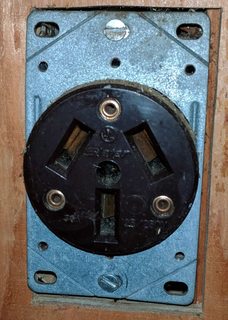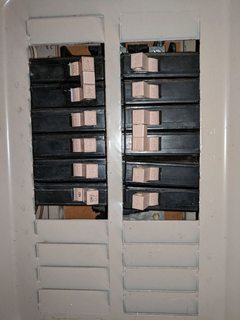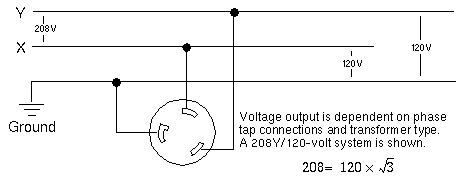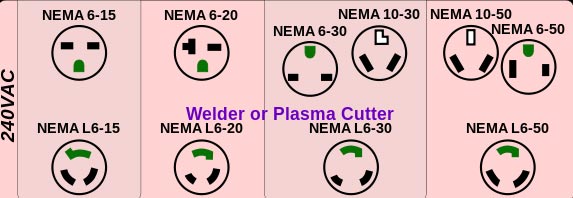I love the idea of making (or buying) an inexpensive 120 to 240V adapter for the EVSE included with the Bolt! But I need a little help figuring out my options in my garage.
I'm currently renting my home and don't plan on being here for more than a year or two, and so I am not motivated to convince my landlord to allow me to install a level 2 charger in the garage. There is an existing outlet in the garage that appeared to be an old dryer outlet, but on closer inspection looks more like the NEMA 10-50 based on the carcharging.us receptacle ID table (I love that site!). Also, the breaker box in the garage appears to have an 80 amp breaker, which I assume is for that receptacle.
Here are my questions:
1) Can anyone confirm for me just based on the photos that this is indeed a NEMA 10-50?
2) Is the breaker configuration appropriate if it is a NEMA 10-50? 80 amp breaker seems very high to me, for a receptacle that's supposed to draw only 50A.
3) If I'm correct, this outlet doesn't have a ground, just two hots and a neutral. And from what I'm reading on how to make this converter, the wiring is 120V hot-neutral-ground to 240V hot-hot-ground (or hot-hot-neutral in this case). I'm sure this has been answered in another forum, so feel free to ignore it if it has been, but does this conversion not take away the ground wire from the EVSE adapter? Does that not make it inherently less safe in the event of a short?
4) Has anyone explored what this conversion does to the warranty of the car or the EVSE?
5) Are there other inexpensive portable EVSE adapters that would be better for me that would both plug into a NEMA 10-50, and perhaps draw a higher amperage? I don't mind spending a few hundred on a good portable EVSE if I can get good use of it, and don't have to pay for an electrician to install (and eventually uninstall) it.























